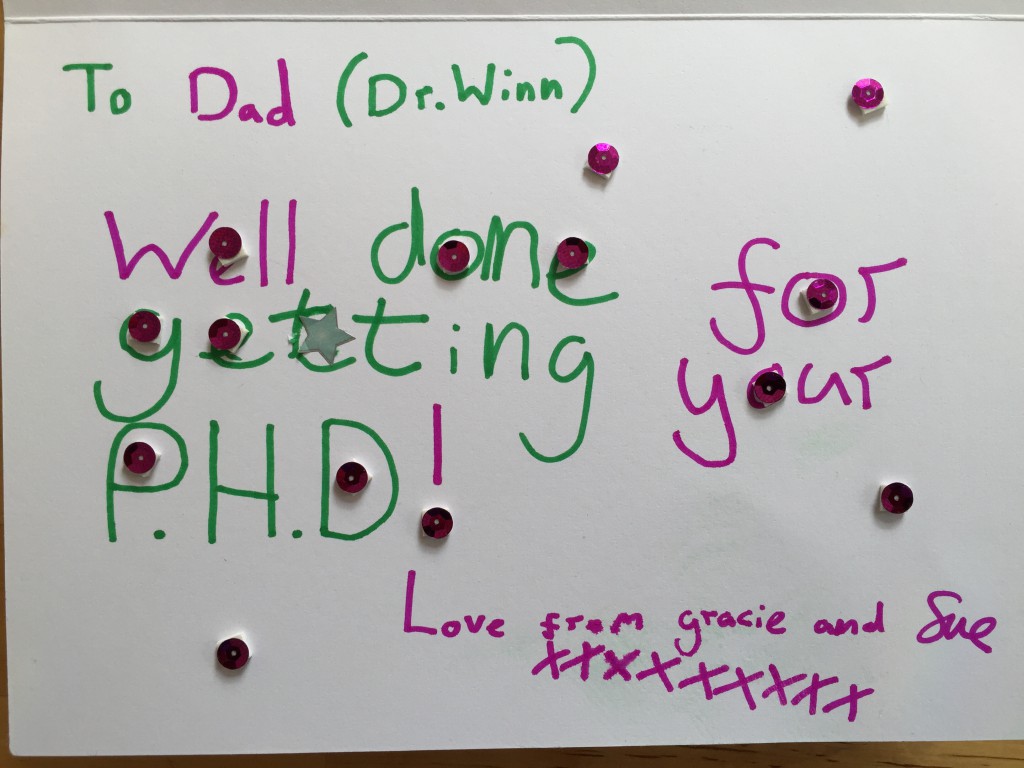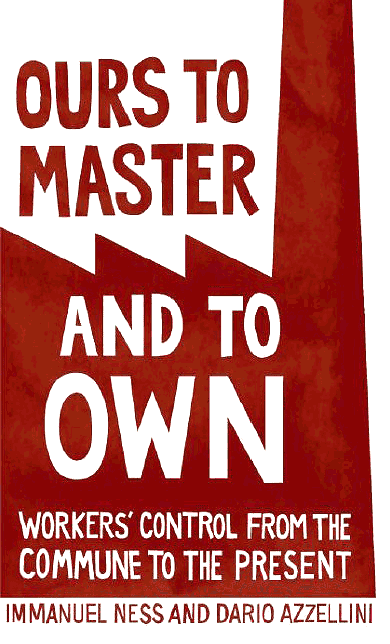Below is a grant application which has recently been funded (£4525) by the Independent Social Research Foundation. It’s a ‘flexible grant for small groups‘ and the group in this case is the Social Science Centre (SSC). If you’re interested in following our project and even contributing, please subscribe to project updates and join our project mailing list. Thank you.
Beyond public and private: A model for co-operative higher education
The Research Idea
We are witnessing an “assault” on universities (Bailey and Freedman, 2011) and the future of higher education and its institutions is being “gambled.” (McGettigan, 2013) For years now, we have been warned that our universities are in “ruins” (Readings, 1997). We campaign for the “public university” (Holmwood, 2011) but in the knowledge that we work for private corporations where the means of knowledge production is being consolidated under the control of an executive. We want the cops off our campus but lack a form of institutional governance that gives teachers and students a right to the university. (Bhandar, 2013)
There is an alternative. Outside the university, there is an institutional form of co-operative association that attempts to address issues of ownership and control over the means of production through a radical form of democracy among those involved. Co-operatives are constituted on the values of autonomy, democracy, equality, equity and solidarity. In many cases the assets of the co-operative are held under ‘common ownership’, a social form of property that goes beyond the distinction between private and public.
This research aims to bring together scholars, students, and expert members of the co-operative movement to design a viable model for co-operative higher education. Using our experience of running a co-operative for higher education in the city of Lincoln since 2011, we will interrogate our existing constitution and pedagogic practices to develop a theoretically and practically grounded model of a ‘co-operative university’ that activists, educators and the International Co-operative Alliance could take forward.
Background
The Social Science Centre (SSC) (http://socialsciencecentre.org.uk) organises co-operative higher education in Lincoln and is run by its members. It was conceived in response to the Coalition government’s changes to higher education funding in the UK which involved an increase in student fees up to £9,000 and defunding teaching in the Arts, Humanities and Social Sciences. It emerged during a time when students were occupying their universities in protest against these changes and the model of public higher education in the UK was undergoing rapid marketisation and financialisation that was undemocratic (McGettigan, 2013) and imposing a “pedagogy of debt” (Williams, 2009). The SSC was not the only attempt to create a ‘free university’ (Bonnett, 2013), but it is the most sustained and lasting of these efforts. One of the reasons for this is because it was given constitutional form as a democratic member-run organisation that is constitutionally the common property of its members. Recently, the idea of a ‘co-operative university’ has gained traction among educators and scholars in part drawing inspiration from the SSC, the conversion of state schools to co-operatives and long-term efforts to teach co-operativism within higher education. (Winn, 2013)
Current approaches to understanding the changes in UK higher education remain tied to deeply rooted conceptions of public and private (Neary, 2012). Ours is not an argument for or against the privatisation of public higher education but an attempt to go beyond these categories through praxis. This praxis means not only free from financial imperatives but real academic freedom.
The Focus
The SSC can be understood through a conceptual framework of ‘in, against and beyond’ the institutional forms in which it was constituted (Holloway, 2002). It was conceived by academics who have been developing a progressive pedagogical framework and model of curriculum development called Student as Producer within the constraints of the capitalist university (http://studentasproducer.lincoln.ac.uk). Through this work, we seek to question and reconceive the idea of the university as a social form and work against what it has become (Neary and Winn, 2009). We aim to go beyond the conventional paradigms of public and private and constitute in practice a form of higher education grounded in the work of theorists such as Walter Benjamin (1934) and Lev Vygotsky (1997), the social history, values and principles of the international co-operative movement (Yeo, 1988), and emerging practices of reciprocity which are constituting a new form of academic commons (Neary and Winn, 2012).
Our approach assumes that a new social and institutional form of higher education must be based on a pedagogic framework that offers an adequate critique of the capitalist university. Through several years of praxis, we have identified sufficient confluences between our pedagogic approach and the theory and practice of worker and social solidarity co-operatives (Conaty, 2014; Winn, 2015) to believe that a model of co-operative higher education can be developed that is adequate to the current crises. The SSC remains experimental in form and an appropriate laboratory for the creation of a co-operative university model.
Theoretical Novelty
The research aims to develop a practical model for a co-operative university which is theoretically grounded in the concept of the Student as Producer (Neary and Winn, 2009; Neary, 2010).The theoretical basis for Student as Producer is Marx’s labour theory of value (Marx, 1976).
Student as Producer recognises that both academics and students are involved as academic workers in the production of critical-practical knowledge (Moten and Harney, 2004). Student as Producer is based on a radical, negative critique of the capitalist university as constituted on the basis of worker exploitation. It is an attempt to develop a pedagogical framework through which the organising principle for the co-operative university can be reconstituted as collaboration, sharing and commoning, already core academic values, against the exploitative values which characterise the capitalist business. This is achieved not through theoretical novelty, but by connecting theory to an actually existing organisational form: the cooperative university. Student as Producer reconstitutes the ownership of the means of production so that academic workers own the means of production of the enterprises in which they are working.
Through the specific historical innovations of worker co-operatives and ‘common ownership’, a co-operative model of higher education seems most appropriate to align with a pedagogical framework that recognises academic labour and the academic commons as the organising principle for the production of knowledge and is thus central to any consideration of a new social form of higher education, having far-reaching social, political and epistemological implications.
Methodology
Our research will be undertaken by members of the SSC and invited experts. We will collectively design an integrated series of workshops inviting academics and students from the social sciences, co-operative business and management, and humanities to work with us. We will also involve historians of the co-operative movement, legal specialists, worker-members of co-operatives, and individuals who have been involved in the free university movement in the UK and elsewhere. When appropriate, we will supplement these activities with a range of qualitative research methods, including semi-structured interviews, focus groups, and surveys so as to understand how the different models of co-operative organisation might be applied to higher education and the production of knowledge.
Run as a critical participatory action research project (Kemmis, 2008) within the SSC, we aim to ensure that all participants feel able to contribute to the design and outcomes of the research. Based on “collective deliberation aimed at collective self-understanding” (ibid, 135) of our own co-operative, participants will seek to contribute, through praxis, to the development of a common model for a ‘co-operative university’. As with our pedagogical approach, our overall methodological perspective is informed by a critique of the contradictory relationship between labour and capital and the emancipatory potential inherent in the capital relation. From this viewpoint, labour is understood dialectically as both socially constituted and mediating (Postone, 1993) and the methods of our research are understood to be constituted by our immanent social conditions but also prefigurative of the emancipatory potential of our collective work.
Work Plan
The research will take place over 12 months (April 2015 to March 2016). A timetable of actions (workshops, focus groups, etc.) will be organised in the first two months of the research process, with two months at the end given to writing up the research findings and publishing the intended model. Our proposed budget offers an outline of this timeline.
The underlying process of action research will be co-designed by the research group i.e. members of the Social Science Centre, and co-ordinated through a regular timetable of information meetings, study seminars and research design workshops. The sessions will be aimed at creating a ‘safe space’ that builds solidarity within the immediate group and with visiting guests. The researchers will produce frequent blog posts on activities and matters as they arise which will be published on the SSC website for public comment.
Over the eight months of actions and other research activities, we intend to invite other similar and supportive organisations (e.g. Co-ops UK, Co-operative College, Radical Routes, Seeds for Change, Somerset Co-op, Free University Brighton, Hospital University) to our workshop series to be participants in the co-design of a co-operative model of higher education with us. Comprehensive notes from each workshop will be published for comment immediately.
By the end of the research period, we intend to produce an agreed model for a co-operative university, including a proposed pedagogical framework, business plan, model constitutional rules for the co-operative and a proposed model for federation among co-operative universities.
Outcome
It is our intention that this research will lead to the following publicly disseminated outcomes, some of which correspond with the proposed workshops:
* Proposal for a pedagogical framework for co-operative higher education
* Publication of model constitutional rules for a higher education co-operative which are supportive of the pedagogical approach
* A business model for a co-operative university
* Proposal for a federated model of higher education co-operatives
* Formal re-constitution of the Social Science Centre at AGM 2016. This will be a public event to wrap-up and report on the research process.
* Peer-reviewed paper discussing the process and outcomes of the research.
Long-term, we envisage that this work will contribute to the growing literature on co-operative higher education (Winn, 2013) as well as inform discussions about its development within the co-operative movement and among alternative and free universities worldwide. We believe that it will stimulate discussion and action within Co-operatives UK and within the International Co-operative Alliance.
In 2016, the Social Science Centre will have been running for five years and it is likely that the outcomes of this research will be formally adopted by its members. The reconstitution of the SSC will mark a second stage in its short history, providing a relatively mature example of an alternative form of higher education for educators and students to draw inspiration from and continue to develop in, against and beyond the ‘pedagogy of debt’ and the ‘ruins’ of the capitalist university.
Budget
12 months
- April: Planning, consultation
- May: Planning, consultation
- June: Workshop 1: £805 (Theme: Pedagogy for co-operative higher education)
- July: Workshop 2: £805 (Theme: Governance models for co-operative higher education)
- August: Evaluation, planning, consultation
- September: Evaluation, planning, consultation
- October: Workshop 3: £805 (Theme: Legal considerations)
- November: Workshop 4: £805 (Theme: Business models for co-operative higher education)
- December: Evaluation, planning, consultation
- January: Workshop 5: £805 (Theme: Global solidarity and federated co-ordination of co-operative higher education)
- February: Evaluation, planning, consultation
- March: Write-up, publishing of outputs and outcomes
Workshops will be held wherever it is most cost-effective, taking into account the location of participants. We anticipate most workshops being held in or within easy reach of Lincoln. Example calculations given are based on three people (e.g. invited experts, research group members) travelling overnight to each workshop.
Example workshop costs (approx. 10 participants):
Room hire: £100/day
Food: £120 (lunch for all workshop participants)
Hospitality: £75 (based on three evening meals for invited overnight guests)
Accommodation: £210 (based on three single rooms)
Travel: £300 (based on three return train fares)
TOTAL: £805
Workshops x 5 x £805 = £4025
£500 for misc. travel for interviews, individual consultations with key stakeholders
TOTAL: £4525
Co-Applicants (or Co-Investigators)
Joss Winn, School of Education, University of Lincoln http://staff.lincoln.ac.uk/jwinn
Prof. Mike Neary, School of Social and Political Sciences, University of Lincoln, http://staff.lincoln.ac.uk/mneary
References
Bailey, Michael and Freedman, Des (2011) The Assault on Universities: A Manifesto for Resistance, London: Pluto Press.
Benjamin, W. (1934) The Author as Producer, in M. W. Jennings, H. Eiland and G. Smith (eds) (2005), Walter Benjamin: Selected Writings, Volume 2, 1927-1934, pp.768-82. Cambridge: Harvard University Press.
Bhandar, B. (2013) A Right to the University, London Review of Books blog. http://www.lrb.co.uk/blog/2013/12/10/brenna-bhandar/a-right-to-the-university/ (accessed 16th December 2014).
Bonnett, Alastair (2013) ‘Something new in freedom’, Times Higher Education. 23rd May. http://www.timeshighereducation.co.uk/features/something-new-in-freedom/2003930.article (accessed 16th December 2014)
Conaty, Pat (2014) Social Co-operatives: a democratic co-production agenda for care services in the UK. Co-operatives UK. http://www.uk.coop/sites/storage/public/downloads/social_co-operatives_report.pdf (accessed 16th December 2014)
Holloway, John (2002) Class and Classification: Against, In and Beyond Labour. In Dinerstein and Neary (eds.) The Labour Debate: An Investigation into the Theory and Reality of Capitalist Work, Aldershot: Ashgate Publishing.
Holmwood, John (2011) A Manifesto for the Public University, London: Bloomsbury Academic.
Kemmis, Stephen (2008) Critical Theory and Participatory Action Research. In: Peter Reason and Hilary Bradbury (eds.) The Sage Handbook of Action Research (2nd edition), London: Sage Publications.
Marx, Karl (1976) Capital Volume 1. London: Penguin Classics.
McGettigan, Andrew (2013) The Great University Gamble: Money, Markets and the Future of Higher Education, London: Pluto Press.
Moten, Fred and Harney, Stefano (2004) The University and the Undercommons: Seven Theses, Social Text 22 (2), 101-115.
Neary, Mike and Winn, Joss (2009) The student as producer: reinventing the student experience in higher education. In: Bell, Stevenson and Neary (Eds.) The future of higher education: policy, pedagogy and the student experience, London: Continuum.
Neary, Mike (2010) Student as producer: a pedagogy for the avant-garde?, Learning Exchange, 1:1. http://eprints.lincoln.ac.uk/4186/(accessed 16th December 2014)
Neary, Mike and Winn, Joss (2012) Open education: common(s), commonism and the new common wealth. Ephemera: Theory & Politics in Organization, 12 (4). pp. 406-422.
Postone, Moishe (1993) Time, Labour and Social Domination, Cambridge: Cambridge University Press.
Readings, Bill (1997) The University in Ruins, Cambridge: Harvard University Press.
Social Science Centre http://socialsciencecentre.org.uk
Student as Producer http://studentasproducer.lincoln.ac.uk
Vygotsky, L. (1997) Educational Psychology, Boca Raton, Florida: St Lucie Press.
Williams, Jeffrey (2009) The Pedagogy of Debt. In: The Edu-Factory Collective (eds.) Toward a Global Autonomous University. pp. 89-96. New York: Autonomedia.
Winn, Joss (2013) Co-operative universities: A bibliography. http://josswinn.org/2013/11/co-operative-universities-a-bibliography/(accessed 16th December 2014)
Winn, Joss (2015) The co-operative university: Labour, property and pedagogy. Power and Education, 7 (1).
Yeo, Stephen (1988) New Views of Co-operation, London: Routledge.



